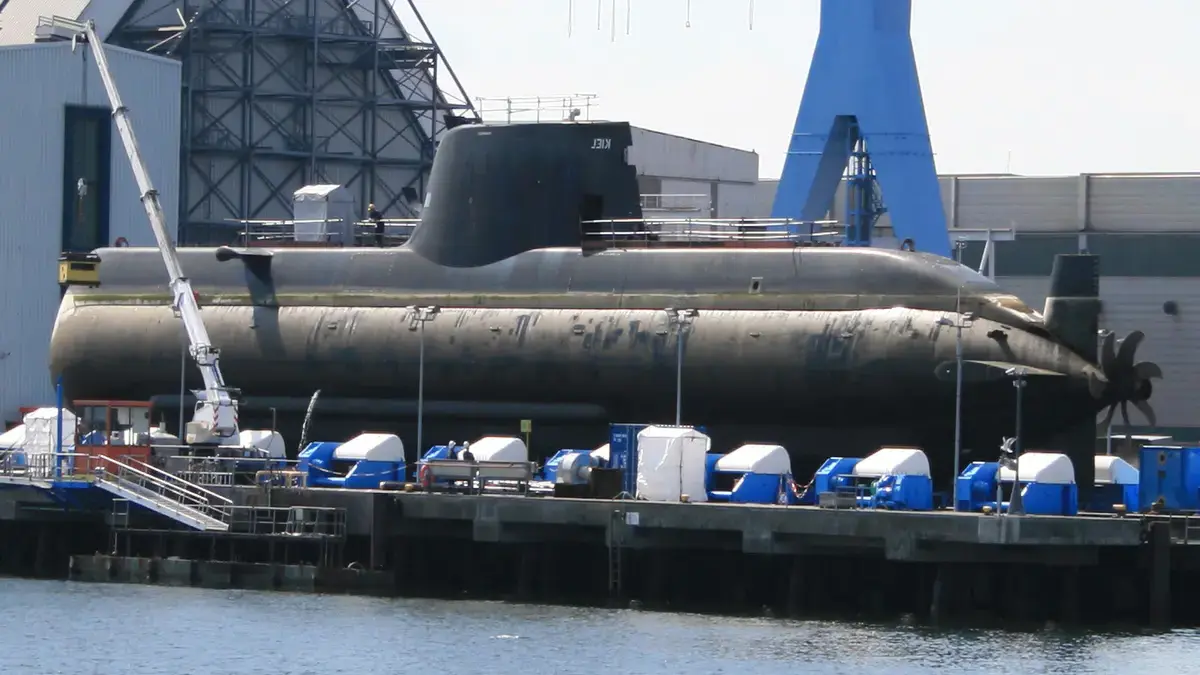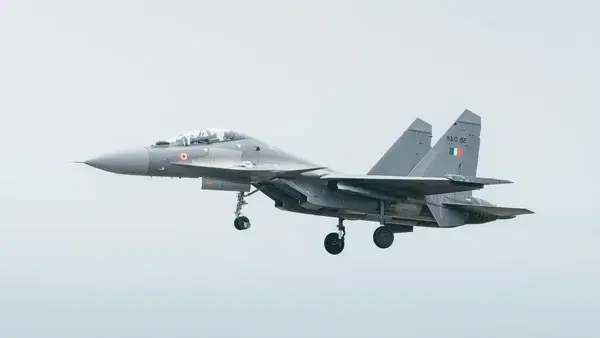Naval Group has formally delivered a modern submarine to the Greek Navy, the first delivery under a €1 billion contract signed in early 2025. The submarine, upgraded with advanced combat systems and sensors, represents a key element of France’s expanding naval defense exports and strengthens Greece’s maritime posture in the Eastern Mediterranean.
- HDW Type 214 Submarine S-120 Papanikolis. The Type 214 is an export-oriented diesel-electric submarine developed by Howldtswerke-Deutsche Werft (HDW), featuring air-independent propulsion (AIP) powered by Siemens PEM hydrogen fuel cells. (GDK)
France’s naval export strategy
The delivery of the naval group underlines the trend of European naval-industrial cooperation, in which France is positioning itself as a major exporter of advanced submarines and frigates. The submarines handed over to Greece are part of a broader strategic program, which includes the possible transfer of new Scorpene-class or Barracuda-class ships in the coming years. The offers are consistent with a 20-year modernization plan worth around €25 billion that Greece is pursuing to renew its submarine fleet and establish a long-range strike capability through submarine-launched cruise missiles.
At the Joint Naval Event in Farnborough in May 2025, the Hellenic Navy outlined plans to acquire four new submarines, likely built with French involvement and equipped for land-attack missions with a range of over 1,000 km. Candidate designs include the Naval Group’s Scorpene and Barracuda models, as well as options from TKMS and Saab.
Strengthening Greece’s Mediterranean Strategy
The submarine delivery is directly linked to Greece’s broader maritime strategy. Under the long-term naval arms plan, Athens is investing in both surface and underwater platforms to counter the expansion of its regional naval forces, particularly in the context of Turkey’s growing surface and underwater force posture. Submarines remain central to Greek defense planning due to their stealth, endurance and tactical flexibility.
In parallel with the submarine modernization, Greece has secured contracts for multiple French FDI Hellenic Navy frigates to strengthen its presence in the Aegean and Eastern Mediterranean and establish standardized logistics and command structures in its fleet – and has exercised the option for a fourth ship.
Strategic and operational importance
The €1 billion submarine upgrade contract reflects both strategic and industrial diplomacy:
- Operational enhancement: Modern submarines will improve Greece’s surveillance, anti-surface and anti-submarine warfare capabilities, as well as its future potential for strike missions in disputed maritime zones.
- Industrial cooperation: France has stressed the need for industrial partnerships with Greek shipyards and defense companies engaged in system integration, training and future local assembly.
- Regional Deterrence: Greece’s submarine capabilities play a key role in deterrence strategies – underwater assets are uniquely suited for quiet area-denial and intelligence-gathering missions.
Brazilian Navy’s Scorpion-class submarine Humai. The Scorpion-class is a diesel-electric attack submarine jointly developed by the French Naval Group and Navantia of Spain, equipped with conventional propulsion and alternative air-independent propulsion (AIP) systems.
Reference: Hellenic Navy Naval Modernization
Greece is actively pursuing a comprehensive naval modernization. In addition to submarine modernization, the Hellenic Navy is expanding its surface fleet through the FDI-HN frigate program in partnership with the Naval Group, and is exploring the second-hand acquisition of Italian FREMM ships.
The recapitalization of the submarine fleet includes a mid-life upgrade of the existing Type 214 boats (Papanikollis-class) and plans to replace the older Type 209 submarines with new builds or modernized variants. At least half of the incoming submarines are expected to carry cruise-missile weapons.
Looking ahead
The delivery on July 29 marks the first phase of Greece’s submarine modernization with French support. As the Naval Group and Greece collaborate on further builds or upgrades, the delivery lays the foundation for more ambitious naval exports and deeper bilateral defense ties. For France, it reinforces its credibility as a reliable defense partner. For Greece, it advances a long-term maritime strategy aimed at achieving sustainable deterrence, industrial resilience, and interoperability within NATO.
Read Next: Boeing Defense Workers Strike Raises Concerns Over U.S. and Allied Military Readiness
FAQs: People Also Ask
Greece is modernizing its navy to counter growing naval power in the eastern Mediterranean. Submarines give Greece an edge in stealth, surveillance, and deterrence against regional threats, especially as Turkey also expands its fleet.
The deal is about more than just buying submarines. It reflects Greece’s rise as a major naval exporter and a push to build a strong maritime position. The partnership also includes industrial cooperation, training, and an option for future submarines such as the Scorpene or Barracuda classes.
Yes, Greece’s naval plan includes a submarine capable of launching cruise missiles with a range of over 1,000 km. This is part of a €25 billion modernization program that aims to give the Hellenic Navy a land-attack capability and long-range strike power.
Naval defense exports are trending worldwide as countries upgrade fleets to meet new threats. Like Greece, countries such as India, Brazil, and Australia are also buying or building advanced submarines with AIP systems. France’s naval group has become a hot topic in defense circles due to its growing global presence.








Leave a Reply